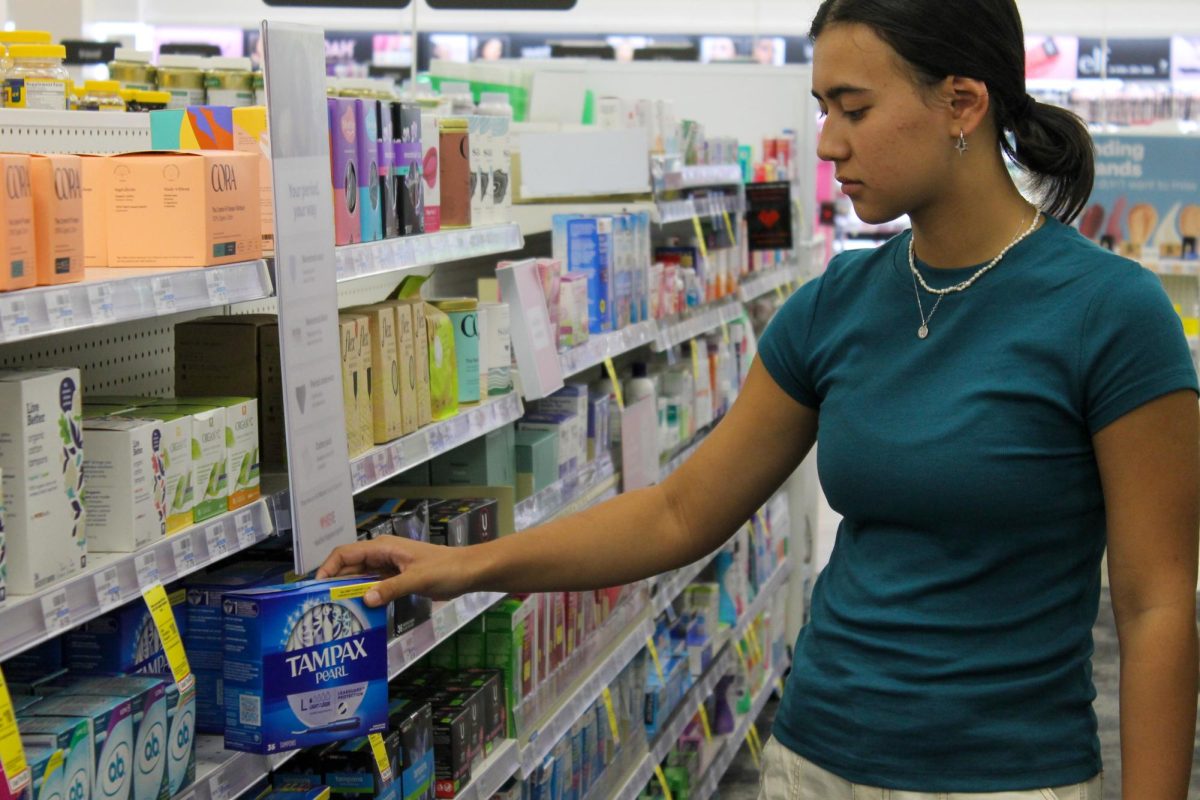A gold necklace, a Mercedes-Benz, a yacht and a tampon. These products were all taxed as luxury goods in Texas up until Sept. 1, when the Texas legislature recognized period products as a basic need rather than a luxury item.
Under Senate Bill 379, there will no longer be a state imposed sales tax on menstrual products like but not limited to tampons, pads, and menstrual cups. Texas is the 25th state to impose such a bill.
To many organizations like the Alliance for Period Supplies, this removal of tax is a step in the right direction for solving period inequity by making high-quality menstrual products available for all who need them.
“Exempting period products from sales tax is beneficial to anyone with a period,” Lacey Gero, Director of Government Relations for Alliance for Period Supplies Director, said. “Prior to the passage of legislation in Texas, Texas residents were paying the same amount of tax on period products as they were luxury items like handbags, décor, electronics, and makeup. So it’s really important that this bill was passed because it recognizes that these products are basic necessities and not luxury items.”
While the removal of taxes on menstrual supplies may seem minimal in terms of helping lower the price of period products, it has an impact over just the reduction. In a 2018 study, “Who Benefits from Repealing Tampon Taxes: Empirical Evidence from New Jersey,” it was discovered that after a repeal of a tampon tax, the price of menstrual products was reduced in manufacturing as well. Many companies began decreasing prices of menstrual supplies for even further consumer savings, especially in menstrual supplies that were bought by lower income people.
This disproves the previous thought that in response to the reduction in final cost, companies would increase their prices for greater profit, keeping the total price the same.
“Here we found, everyone gets a little bit of a savings, but the bigger savings was for the lower income individuals,” Chris Cotropia, University of Richmond law professor and co-author of the study, said. “We saw the biggest kind of actual drop in prices in those lower priced products.”
By making period supplies available, Gero hopes to end a cycle of poverty relating to periods and absenteeism.
“One in three low income people have reported missing work, school, or similar events due to lack of access to period products, and not having access to the products is linked to reported feelings of embarrassment, disappointment and depression,” Gero said. “When people aren’t able to go to their job, that then creates and perpetuates that vicious cycle of poverty.”
Menstrual products company Always reported that “nearly 1 in 5 girls have missed school because they didn’t have access to period products.” As a result, other states such as California and Delaware have even gone further than just dropping the tampon tax by putting menstrual products in public school bathrooms for free or discounted price, making period products more accessible for students.
Closer to home, several students at Southern Methodist University started an initiative called The Period Project, spearheaded by Marie Joung ‘20, which focuses on putting free high-quality menstrual products in all bathrooms on campus. The idea revolves around reducing period inequity by giving everybody equal access to menstrual supplies whenever or wherever they may need.
Currently The Period Project has received $10,000 in funding from the SMU Student Senate to put high-quality menstrual products in three bathrooms on campus in the main building. This has been described as Phase 1 of their plan by The Period Project co-president Alison Kellom. The second phase involves expanding to several more bathrooms on campus.
“Our Phase 2, hopefully this semester, is going to include expanding to 16 more restrooms across buildings all over campus,” Kellom said. “Our hope is that we can get the funding for these products permanently instated in the facilities budget just as they would buy toilet paper, paper towels and other items like that.”
Kellom believes that the dismissal of the tampon tax will greatly aid the Period Alliance’s efforts.
“I think that general support from the state helps us to advocate to the people that work at SMU and would be funding our project in the future, because they see how important [menstrual equity] is to everybody in the state of Texas,” Kellom said. “Then it kind of transcends on to the student body.”
The recent tax decision leaves Kellom feeling hopeful for greater changes, leaving them one step closer to achieving the future goals of the Period Alliance.
“We want to make sure that everyone has access to the basic necessities they need to thrive, we don’t ask for periods.” Kellom said. “So our end goal is to pass legislation, and make sure that our community programs and actual supplies are free for everybody.”




